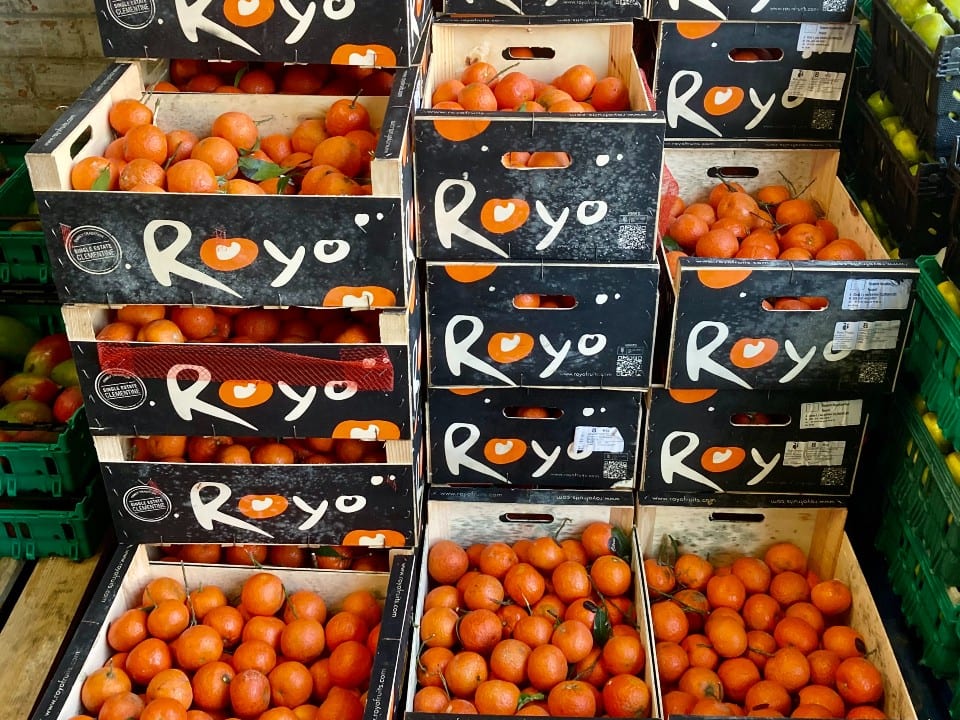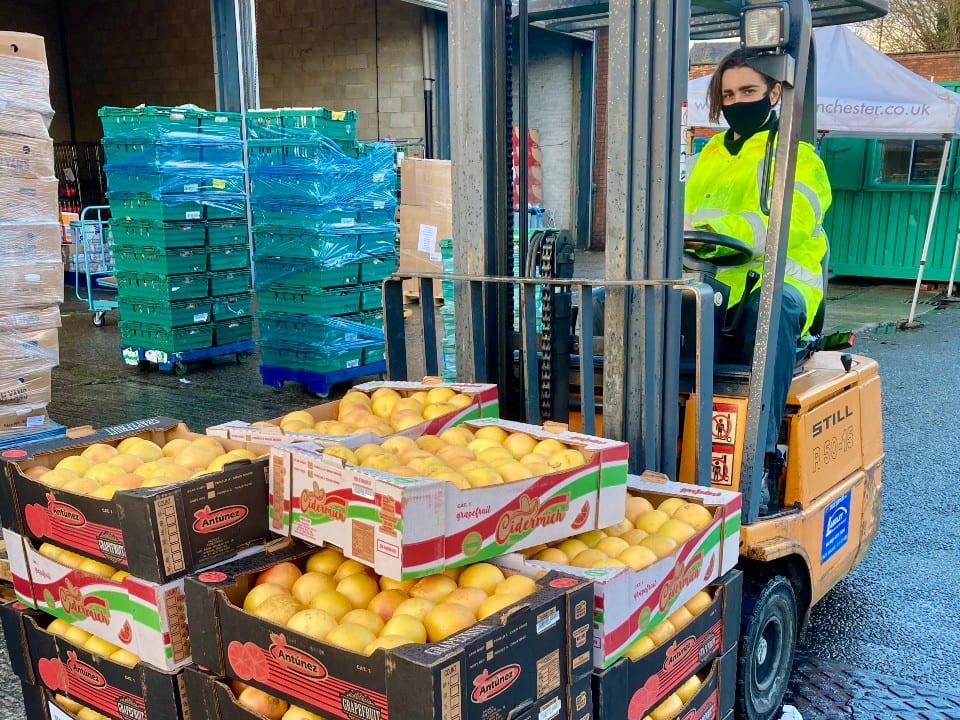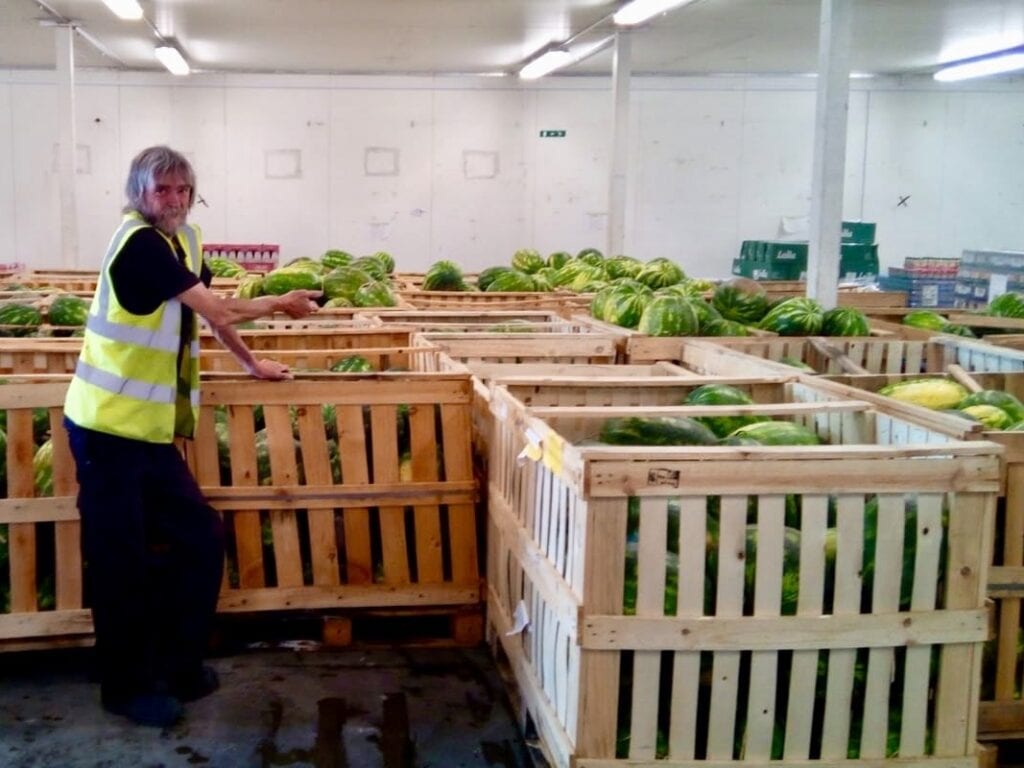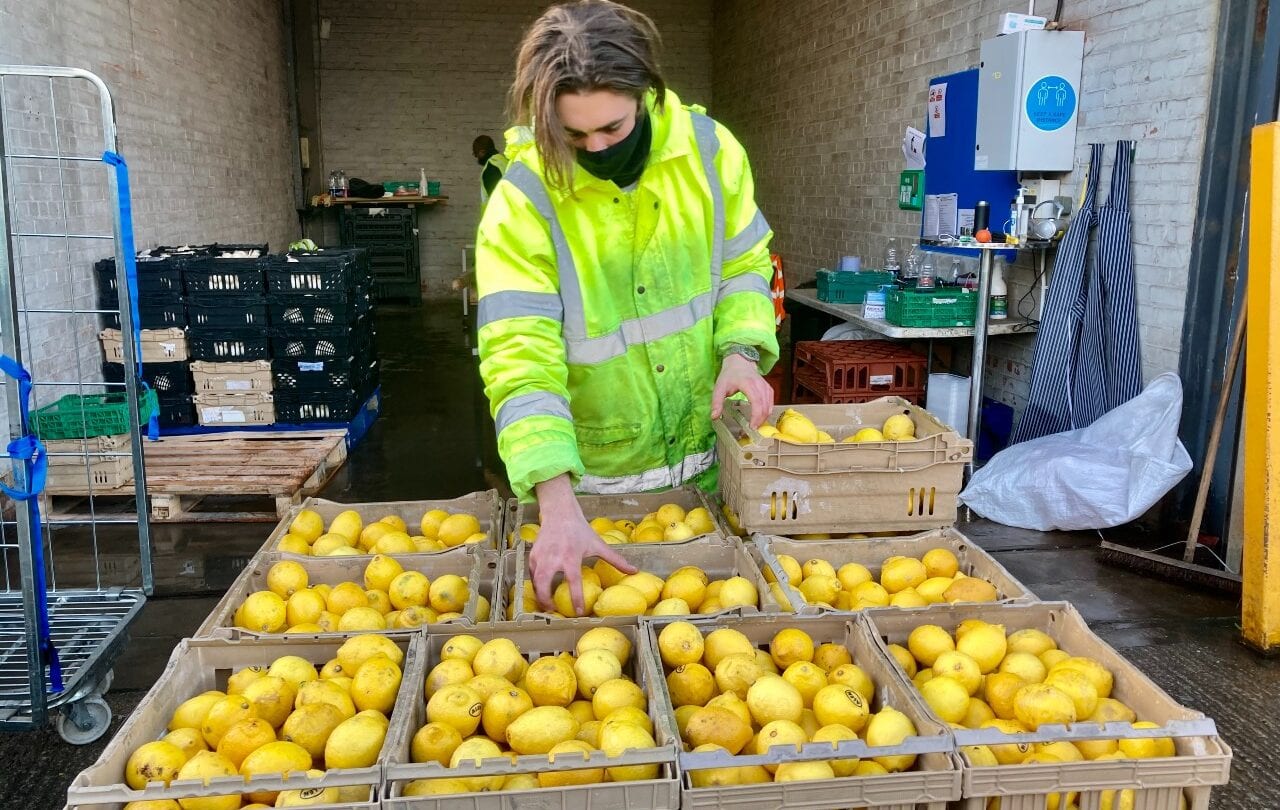Over the course of 2020, we’ve been busy working on a WRAP-funded project with our neighbours at New Smithfield Market. In short, we’ve aimed to divert surplus fruit and veg from landfill and help our members. Ultimately, we endeavour to turn it into nutritious meals for people in the community.
Our approach to ending fruit and veg going to waste
One of the benefits of being based at New Smithfield Market in East Manchester, as a food distribution charity, is that we’re right in the heart of the North West’s largest wholesale fruit and vegetables market. Everything from aubergines to oranges passes through the market gates, but when it goes unsold it goes to waste. Collectively, traders dispose of nearly 4,000 tonnes of food wastage with unwanted fruit and veg being thrown each year in a landfill.
However, 5-10% of the surplus produce on the market is perfectly edible. Thanks to grant funding from WRAP and our brilliant volunteers, we’ve been running a fruit and veg diversion project to save as much of it as we can and prevent the food wastage. We are then able to redistribute it to our Community Food Members across Greater Manchester.

Fresh fruit and veg is vital for maintaining a balanced and healthy diet. However, it’s often the food category that individuals and families in poverty have the least access to. Thankfully, over the course of 2020 our diversion project has managed to redistribute 57 tonnes of fresh produce to frontline charities and food banks.
This has been all the more important during the pandemic. In particular, this era has seen the number of people depending on our food nearly double at peak times. During the first lockdown period, the project contributed significantly to the incredible 300 tonnes of fresh fruit and veg we sent out to people in need.
More thoughts about our fresh approach to produce waste
Andrew Fowler, project worker, is seeing the benefits first-hand:
The project has allowed us to work with a wide range of fresh produce, and in particular less common fruit and vegetables that the FareShare network wouldn’t otherwise have the opportunity to purchase. We’re receiving a lot of enthusiastic feedback about the quality and volumes we’re now able to offer.
Our BME Network friends in particular are appreciative of a wider range of produce they can cook with, and it’s rewarding to know we’re offering versatility to people’s diets. We’re also building good relationships with people in the market, centred around reducing food waste.

One of the key parts of the project is to help our network make best use of the produce we supply. In short, by providing storage and preserving advice and sharing tried-and-tested cooking in bulk recipes.
In June, for instance, we reached out to the community for recipes using watermelons after receiving a huge 47-pallet delivery of watermelons from the market. Our favourite suggestions were watermelon and feta salad and this delicious watermelon curry recipe.

As well as making a huge difference to people’s health, the project is also making a huge difference to the environment. Each kilo of produce we rescue from disposal saves around 4.5kgs in CO2 emissions, helping to contribute to the fight against climate change.
We’d like to send out a huge thanks to our hard-working volunteers and to the generous support from WRAP which has made this project a reality.

Keep an eye out on our Facebook, Twitter and Instagram pages for calls for new recipe suggestions!

